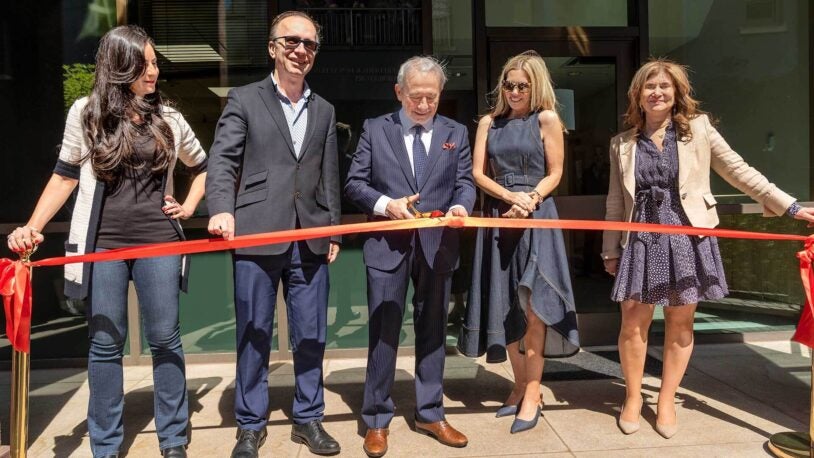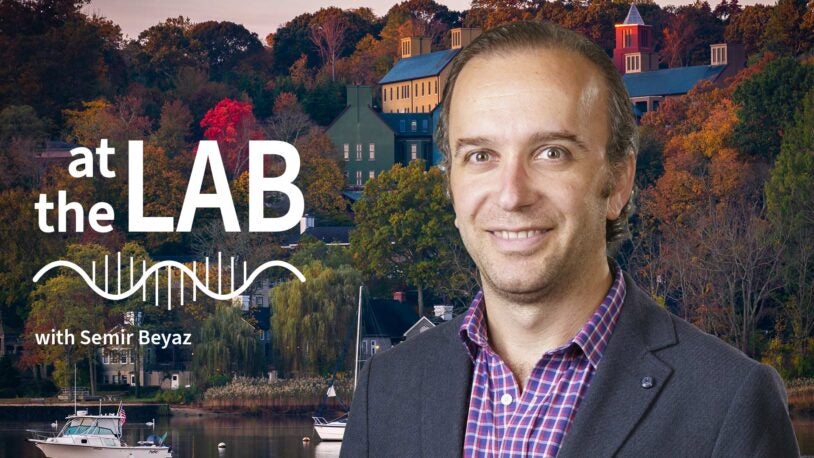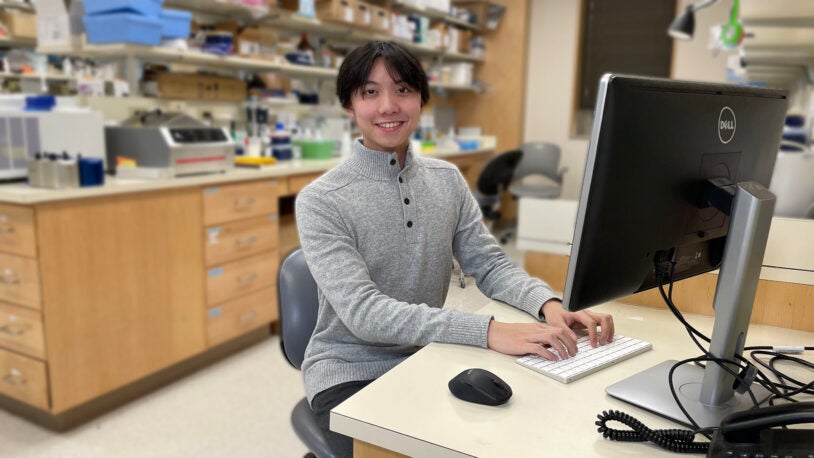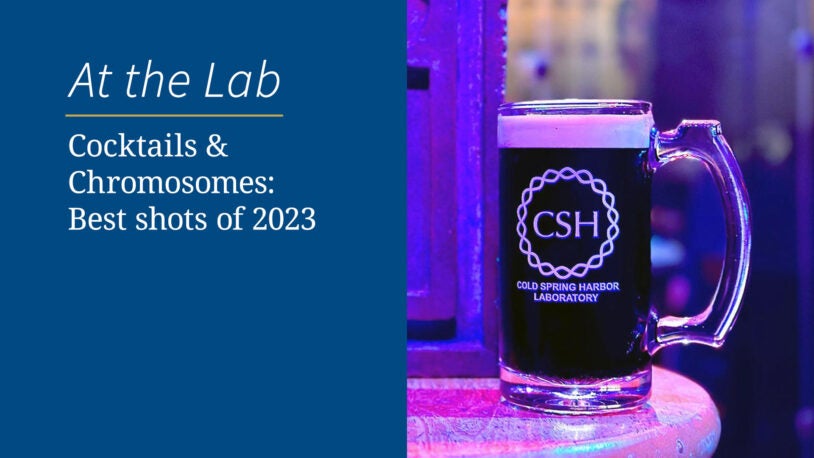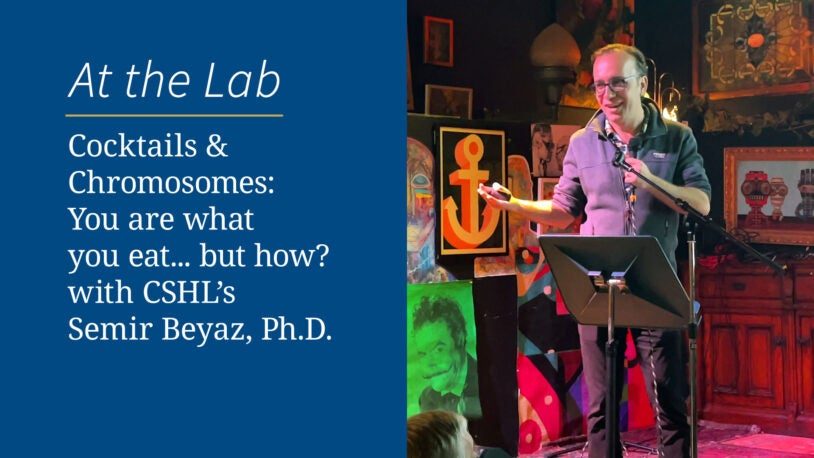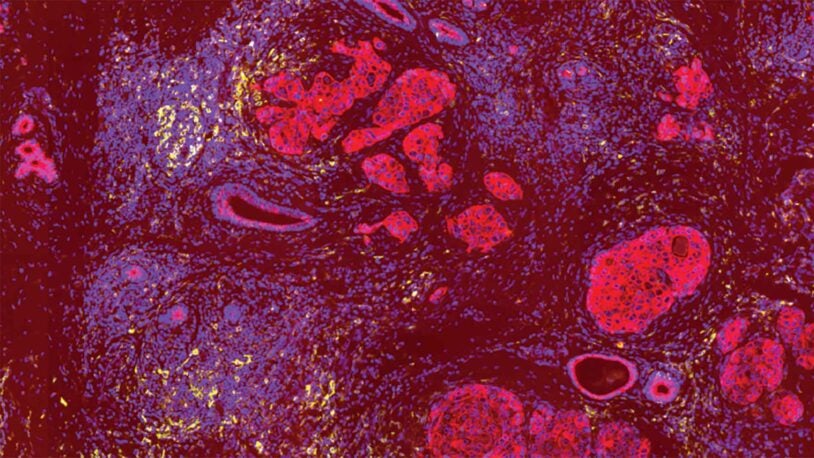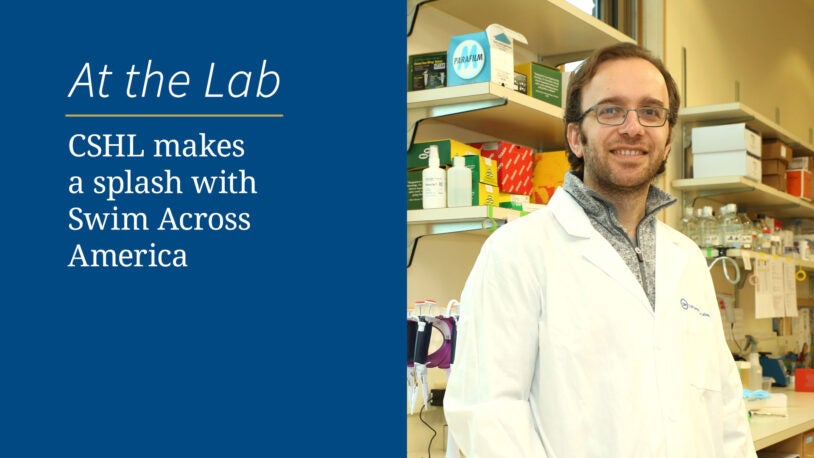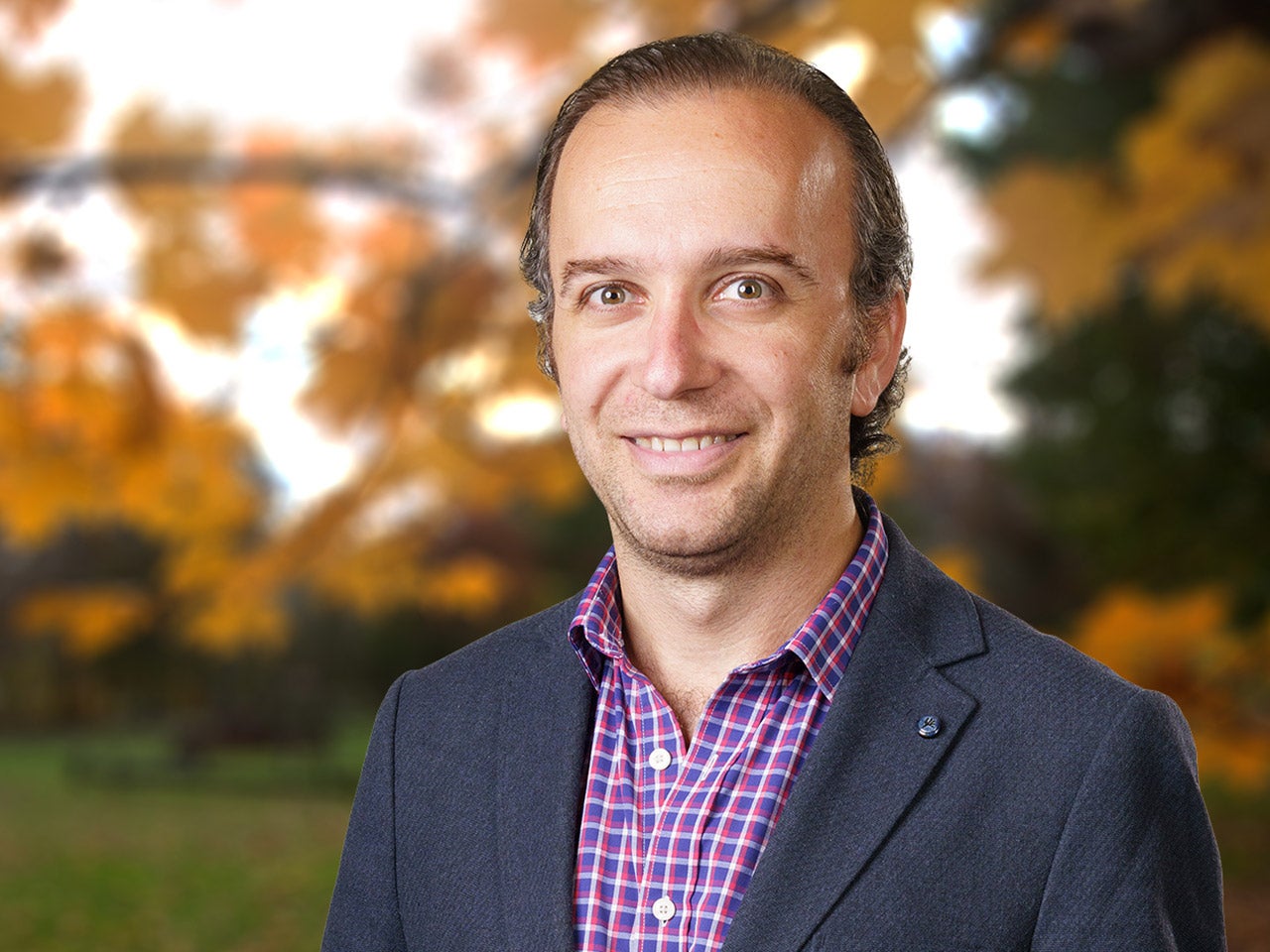
Semir Beyaz
Assistant Professor
Cancer Center Member
Ph.D., Harvard University, 2017
beyaz@cshl.edu | 516-367-4128
Faculty ProfileAre you really what you eat? Our goal is to uncover the precise mechanisms that link nutrition to organismal health and disease states at the cellular and molecular level. A particular focus in our lab is to understand how dietary perturbations affect the immune system and contribute to the risk of diseases that are associated with immune dysfunction such as cancer.
Our laboratory deciphers how nutritional cues and metabolic–epigenetic cross-talk sculpt cellular networks that sustain healthy tissue function—and how their disruption drives maladaptive remodeling in diseases such as colon and endometrial cancers as well as in endometriosis. We integrate genomic, transcriptomic, and epigenomic profiling with metabolic measurements, biochemical assays, and microbiome analyses to deconstruct the signaling circuits underlying these outcomes. Anchoring our studies in patient-derived tissue specimens and organoid platforms ensures every mechanistic insight is rooted in human biology—and directly informs the discovery of biomarkers and therapeutic targets for prevention, early diagnosis, and treatment of these debilitating diseases.
Cells respond and adapt to the signals that they receive from their environment. Environmental factors such as nutrients affect cellular states by altering cell state-specific gene expression or metabolic programs. My research group investigates the causal cellular and molecular mechanisms that link nutrition to organismal health and disease. For example, diets that lead to obesity, such as high fat diets are significant environmental risk factors that influence cancer incidence and progression in several tissues. Although the interactions between tumor cells and the immune system play a significant role in tumorigenesis, little is known about how dietary perturbations impact immunity against cancer. Our studies interrogate the functional consequences of diets on immune recognition and response pathways that play critical role in cancer immunity. By identifying the altered gene expression and metabolic programs in the immune system in response to dietary perturbations, our goal is to uncover mechanistic links that can be therapeutically exploited for the treatment of diseases associated with immune dysfunction such as cancer.
I have joined forces with Dr. Tamer Seckin at Northwell Health to tackle endometriosis.
CSHL Fellow Semir Beyaz wins three awards
The Janeway Award, New England Immunology Conference
Trainee Award, American Association of Immunologists
Outstanding Poster Award, International Society for Stem Cell Research
Zhongmei Chen Yong Travel Award for Scientific Excellence, International Society for Stem Cell Research
Merit Award, International Society for Stem Cell Research
Thermo-Fisher Trainee Achievement Award, American Association of Immunologists
Endometriosis Foundation of America commits $10 million to CSHL
May 2, 2025
EndoFound partners with CSHL to open the Seckin Endometriosis Research Center for Women’s Health at Cold Spring Harbor Laboratory.
At the Lab Season 1 Research Rewind: Cancer
October 8, 2024
As the first season of our new podcast winds down, we’re revisiting all of our episodes with a focus on CSHL’s cutting-edge cancer research.
At the Lab Episode 12: Cancer cops
June 25, 2024
In this week’s podcast, CSHL Assistant Professor Semir Beyaz reveals how metastatic breast cancer ‘corrupts’ the body’s immune system.
Women’s health quiz
March 19, 2024
CSHL research has yielded insights into a number of women’s health topics, from menopause to breast cancer. Take this quiz to see how far we’ve come.
CSHL PFF student named Regeneron scholar
February 5, 2024
Griffin Hon, a senior at Syosset High School, studied bowel disease alongside CSHL Assistant Professor Semir Beyaz using single-cell sequencing.
How diet may impact cancer and possible treatments
February 1, 2024
Researchers at the CSHL Cancer Center study the links between disease and nutrition in hopes of uncovering new treatment and prevention strategies.
Cocktails & Chromosomes: Best shots of 2023
January 16, 2024
After a four-year hiatus, Cocktails & Chromosomes returned in 2023. Relive the past year’s best moments and see what’s in store for 2024.
Cocktails & Chromosomes: You are what you eat
December 14, 2023
The question is how! Whet your appetite for discovery with this mouthwatering talk on diet and nutrition from CSHL’s Semir Beyaz.
Test your breast cancer awareness
October 18, 2023
Awareness is key to prevention and potential future treatments. Take this quiz to find out about the latest in breast cancer research at CSHL.
CSHL makes a splash with Swim Across America
August 21, 2023
Since 1987, the charity swim has raised over $100 million for cancer research. Here, CSHL Assistant Professor Semir Beyaz voices his support.
Study: High-Fat Diets May Raise Cancer Risk
High-fat diets increase risk of tumors forming in the gut, say scientists
How A High-Fat Diet Can Increase Cancer Risk
Selected Publications
High-fat diet activates a PPAR-δ program to enhance intestinal stem cell function
1 Apr 2021 | Cell Stem Cell | 28(4):598-599
Beyaz, Semir; Mana, Miyeko; Yilmaz, Ömer;
IL-22 receptor signaling in Paneth cells is critical for their maturation, microbiota colonization, Th17-related immune responses, and anti-Salmonella immunity
15 Oct 2020 | Mucosal Immunology
Gaudino, S; Beaupre, M; Lin, X; Joshi, P; Rathi, S; McLaughlin, P; Kempen, C; Mehta, N; Eskiocak, O; Yueh, B; Blumberg, R; van der Velden, A; Shroyer, K; Bialkowska, A; Beyaz, S; Kumar, P;
Dietary suppression of MHC-II expression in intestinal stem cells enhances intestinal tumorigenesis
8 Sep 2020 | bioRxiv
Beyaz, S; Roper, J; Bauer-Rowe, K; Xifaras, M; Ergin, I; Dohnalova, L; Biton, M; Shekar, K; Mou, H; Eskiocak, O; Ozata, D; Papciak, K; Chung, C; Almeqdadi, M; Fein, M; Valle-Encinas, E; Erdemir, A; Dogum, K; Garipcan, A; Meyer, H; Fox, J; Elinav, E; Kucukural, A; Kumar, P; McAleer, J; Thaiss, C; Regev, A; Orkin, S; Yilmaz, O;
Distribution and storage of inflammatory memory in barrier tissues
3 Feb 2020 | Nature Reviews Immunology | 20(5):308-320
Ordovas-Montanes, J; Beyaz, S; Rakoff-Nahoum, S; Shalek, A;
Oncogenic KRAS Reduces Expression of FGF21 in Acinar Cells to Promote Pancreatic Tumorigenesis in Mice on a High-Fat Diet
25 Jul 2019 | Gastroenterology | 157(5)
Luo, Y; Yang, Y; Liu, M; Wang, D; Wang, F; Bi, Y; Ji, J; Li, S; Liu, Y; Chen, R; Huang, H; Wang, X; Swidnicka-Siergiejko, A; Janowitz, T; Beyaz, S; Wang, G; Xu, S; Bialkowska, A; Luo, C; Pin, C; Liang, G; Lu, X; Wu, M; Shroyer, K; Wolff, R; Plunkett, W; Ji, B; Li, Z; Li, E; Li, X; Yang, V; Logsdon, C; Abbruzzese, J; Lu, W;
All Publications
Intestinal secretory differentiation reflects niche-driven phenotypic and epigenetic plasticity of a common signal-responsive terminal cell
1 Apr 2025 | Cell Stem Cell
Bhattacharya, Swarnabh; Tie, Guodong; Singh, Pratik; Malagola, Ermanno; Eskiocak, Onur; He, Ruiyang; Kraiczy, Judith; Gu, Wei; Perlov, Yakov; Alici-Garipcan, Aybuke; Beyaz, Semir; Wang, Timothy; Zhou, Qiao; Shivdasani, Ramesh;
Niche-driven phenotypic plasticity and cis-regulatory dynamics of a revised model for intestinal secretory differentiation.
8 Feb 2025 | bioRxiv
Bhattacharya, Swarnabh; Tei, Guodong; Singh, Pratik; Malagola, Ermanno; Eskiocak, Onur; He, Ruiyang; Kraiczy, Judith; Gu, Wei; Perlov, Yakov; Beyaz, Semir; Wang, Timothy; Zhou, Qiao; Shivdasani, Ramesh;
Generation and Maintenance of Patient-Derived Endometrial Cancer Organoids
20 Oct 2024 | Bio-protocol | 14(20):e5093
Barbi, Mali; Gowthaman, Divya; Katcher, Arielle; Gorman, Megan; Yueh, Brian; Nizam, Aaron; Chung, Charlie; Akyildiz, Erdogan; Frimer, Marina; Goldberg, Gary; Beyaz, Semir;
Glycosphingolipid synthesis mediates immune evasion in KRAS-driven cancer
7 Aug 2024 | Nature
Soula, Mariluz; Unlu, Gokhan; Welch, Rachel; Chudnovskiy, Aleksey; Uygur, Beste; Shah, Vyom; Alwaseem, Hanan; Bunk, Paul; Subramanyam, Vishvak; Yeh, Hsi-Wen; Khan, Artem; Heissel, Søren; Goodarzi, Hani; Victora, Gabriel; Beyaz, Semir; Birsoy, Kıvanç;
Longitudinal multi-omics analysis of host microbiome architecture and immune responses during short-term spaceflight
11 Jun 2024 | Nature Microbiology
Tierney, Braden; Kim, JangKeun; Overbey, Eliah; Ryon, Krista; Foox, Jonathan; Sierra, Maria; Bhattacharya, Chandrima; Damle, Namita; Najjar, Deena; Park, Jiwoon; Garcia Medina, J; Houerbi, Nadia; Meydan, Cem; Wain Hirschberg, Jeremy; Qiu, Jake; Kleinman, Ashley; Al-Ghalith, Gabriel; MacKay, Matthew; Afshin, Evan; Dhir, Raja; Borg, Joseph; Gatt, Christine; Brereton, Nicholas; Readhead, Benjamin; Beyaz, Semir; Venkateswaran, Kasthuri; Wiseman, Kelly; Moreno, Juan; Boddicker, Andrew; Zhao, Junhua; Lajoie, Bryan; Scott, Ryan; Altomare, Andrew; Kruglyak, Semyon; Levy, Shawn; Church, George; Mason, Christopher;
